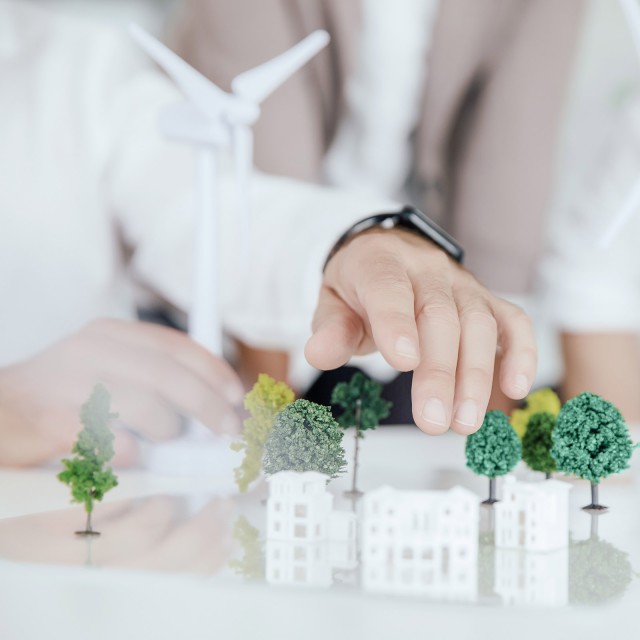August 01, 2019
Sustainable and increasingly in-demand: The green promissory note
By using green promissory note loans, SMEs are attracting attention from green investors. This requires a little courage and clever ideas.


There is immense demand for green investments, with investors are looking for sustainable ways to invest money. This is precisely what makes a company so attractive. Green promissory note loans (SSDs) enable the company to come into contact with investors who may not be aware of many SMEs.
Expenses relating to this are low, because, formally, promissory notes are loans. While bonds are only profitable from volumes of EUR 500m, promissory note loans are marketed from a minimum volume of EUR 20m. And there are also no reporting requirements, as business data is only submitted to interested investors, who are pre-selected by the bank in charge. For example, LBBW may speak to more than 600 potential investors in Germany and abroad. However, anyone who accepts a green bond rather than a classic one must convincingly demonstrate that the money is actually being used to promote sustainable projects. For this, an expert opinion is normally obtained from an external agency. Saving energy is considered green, as is reducing CO2 emissions. Digitalization projects can also prove to be sustainable if they help to save resources, for example.
Legally binding standards that define what is truly green are currently being prepared. Guidelines have been established for the transitional period, and companies and the banks providing support must adhere to them. These guidelines are based on the International Capital Market Association (ICMA) Green Bond Principles. They discuss the ways in which revenue may be used and how the reporting should be. One of the ICMA standards is to have an independent agency examine the project. This agency certifies the promissory note loan as sustainable and thus confirms that the investments actually benefit the environment.
Companies are happy to accept this extra expense. “The market for green promissory notes is clearly picking up speed,” says Matthias-Wolfgang Hoffmann, SSD expert at LBBW. As a long-established market leader for promissory notes, LBBW is a natural contact for companies. Sustainability is one of LBBW’s strategic cornerstones, and has therefore long been part of its mission statement, including in its range of services. “We are also always available for new ideas about green financial products and their development,” says LBBW expert Hoffmann.
Green promissory notes: Simple and flexible
Mann+Hummel, one of the 30 largest automotive suppliers in Germany and a specialist for filter systems, benefits from this expertise. The Ludwigsburg-based company is the first automotive supplier in the world to have accepted a green SSD. This was arranged by LBBW in cooperation with other banks. “As a filter specialist, Mann+Hummel separates the harmful from the useful – what could be better suited for a green promissory note?” says LBBW expert Hoffmann. A volume of EUR 250m was initially planned for the green promissory note, but this was increased to EUR 400m due to demand. The automotive supplier uses this sum to refinance – for example – research for better products in air and water filtration.
With Dürr AG, LBBW is entering completely new territory, namely that of sustainable finance. The EUR 200m promissory note is not about how green the projects are, but about how sustainable the company itself is. The interest rate on promissory notes is linked to the sustainability rating of the mechanical and plant engineering company. The rating includes ecological criteria such as carbon dioxide emissions or water consumption, but also aspects such as fair working conditions, transparent corporate management and dealing with corruption. If the sustainability rating improves above a certain threshold, interest rates fall. Dürr AG is the first borrower worldwide to take on a positive incentive promissory note such as this.
This only goes to show that when demand rises, innovations and clever ideas are needed.
Do you have questions?
Contact us!

Matthias-W. Hoffmann
Matthias-Wolfgang Hoffmann has been an employee of Corporate Debt Origination at Landesbank Baden-Württemberg for many years. As an experienced originator, he advises and supports companies in the selection, structuring and placement of financing instruments. He is responsible for the Sustainable SSD product segment.



